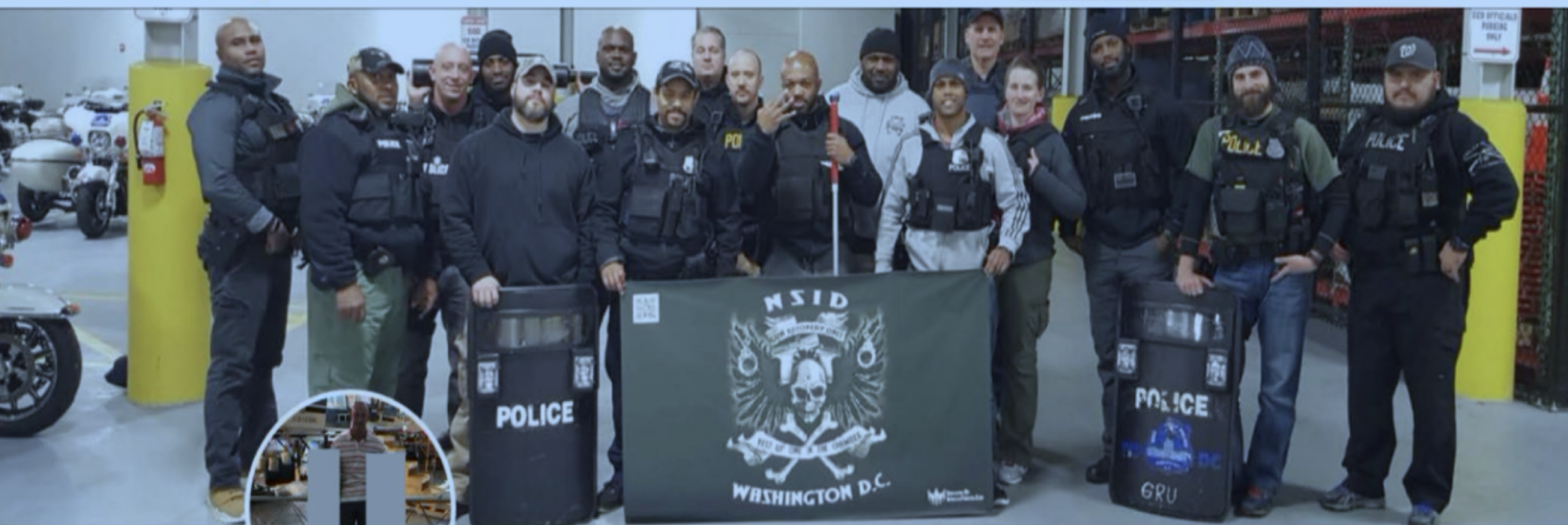
Cross-examining a GRU officer
I won a motion to suppress in a drug case yesterday. The win was particularly gratifying in that it involved the notorious gun recovery unit (GRU) from the Metropolitan Police Department.
One of the lead officers for the GRU testified for the government, and he was a difficult witness: He would not concede a thing.
I usually begin with some innocuous questions. This gets me into a flow. I like to establish a pattern of simple questions leading to yes or no responses. And I like to show the witness that it is okay to agree with me.
In this case, the officer began to argue with me almost immediately.
First, he could not agree with me that there were eight officers who arrived at the scene. So we had to go through each officer by name. Officer so-and-so was there? Yes. Officer so-and-so? I don’t recall. And so on. Then we counted them up: Six officers that he could recall.
Five minutes to establish a simple, ascertainable fact, and that was the easy part.
Another goal was to establish the GRU’s reputation for aggressive police tactics. This would explain why a person seeing them pull up might decide to walk in the other direction.
This could have been difficult with even the most cooperative witness. And in this case, the officer launched into a long diatribe about how committed the GRU unit was to the civil rights and safety of D.C. citizens.
So you are unfamiliar with recent press reports criticizing the tactics of your unit?
This set him off again on a long philosophical discussion of the nature of police work.
Such a combative and loquacious witness can be a challenge. Interrupting or speaking over a witness for non-responsive answers will draw a complaint from the stenographer – and, depending on the judge, a rebuke from the court for not allowing the witness to finish his answer.
I am reluctant to ask the judge to caution the witness. This can sound whiny, and if the judge refuses, will only embolden the witness.
So I typically attempt to rein the witness in myself (“that wasn’t my question” or “was that a no?”). Failing that, I smile patiently and wait, hoping the witness will tire him/herself out with a long-winded response. I then re-ask the same question when the witness concludes the answer.
The hope is that the witness will come across as unresponsive and unreliable. And, if the witness goes on too long, the judge might decide to intervene on his or her own.
In this case, I thanked the GRU officer on behalf of all citizens of the District for his service and his respect for our civil rights but suggested he had not really answered my question.
One of my final objectives with this officer was to establish that, although the officer testified that he and his colleagues were patrolling the “SW quadrant of PSA 105” after an uptick in gun violence there, the address in question was in the Northwest quadrant of PSA 105.
I am sorry, he responded. I am not that familiar with the 1st District. I would have to look at a map.
Okay then, I said, it’s a good thing I have a map of the 1st District. Let’s have a look, shall we?
He examined the map for an inordinate amount of time. It’s really hard to tell, he said finally, because there are not many street names on this map. I would need a different map in order to provide a more definitive answer.
How about a Google map? Would you know how to read one of those? Because I also have one of those.
I waited as he scrutinized this document: You would agree with me that K Street is two blocks up from I Street. And the Google map clearly shows that I Street is in the Northwest quadrant, am I right?
Even then he refused to concede.
My two take-aways from this particular exchange? First, I need to stand up during my crosses. With trials now being recorded on webex video, judges have encouraged us to remain seated so that we are closer to the microphone. But I am used to standing while doing cross-examinations. Standing also helps with the power dynamics: You are free to move around while the witness remains rooted in his seat.
The second take-away is that I am greatly constrained by the mask. I had never realized before how much I rely on facial expressions to manage the witness.
My only regret from this experience is that the officer left the courthouse before the court granted my motion.
